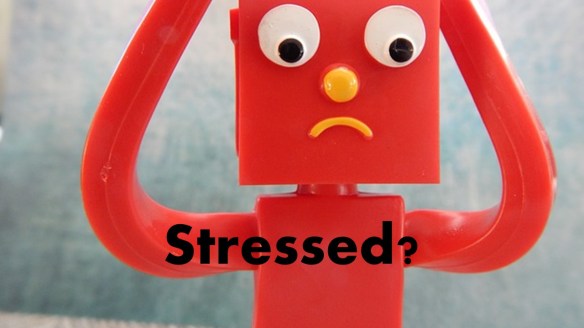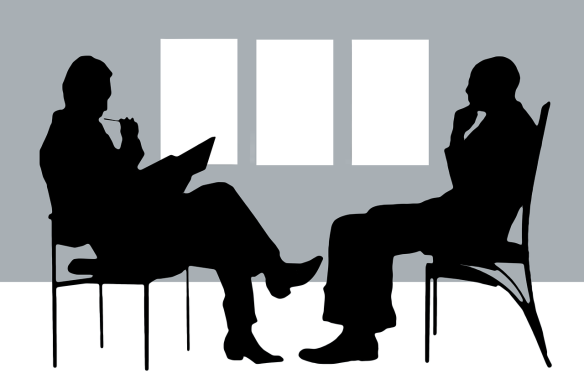By David Joel Miller, MS, Licensed Therapist & Licensed Counselor.
How do you manage stress?
Stress can overwhelm you at any time or anywhere – Here are some suggested ways to turn down the stress volume.
1. Breath.
Under stress, most of us forget to breathe. The result is fewer shorter breathes and an overwhelming sense of panic that can follow a lack of air in your lungs.
Slow your breathing down. Take deep breaths from the diaphragm. You should feel your stomach moving in and out. Short fast breaths from high up in your chest can increase the feelings of stress.
Breathe slowly and deeply, pause between breaths. Watch your stress move out each time you breathe out and pause before taking in that next deep breath.
2. Make friends with silence.
There is noise everywhere. We have our radios and our televisions, our iPad’s and other electronics all screaming away at once. Add on people talking at you all day long and a few people screaming for whatever reason and you are bound to feel the stress meter rise.
Think back to that last time you felt really relaxed and distressed. Maybe a vacation in the mountains or at the beach. One thing you are likely to remember about that time is how quiet it was.
Those voices in your head can get awfully loud some days. Learn to quiet your mind down and embrace the silence. I keep a set of headphones at my desk to minimize the noise. Soft nature sounds help, sometimes no sound at all helps even more to reduce my stress.
3. Say a positive affirmation.
Affirmations are those little saying you tell yourself that help you to cope. Don’t lie to yourself or the whole affirmation will backfire. Tell yourself that this may be stressful but you can handle it. This too shall pass or whatever other saying works for you to put this current stress in perspective.
4. Make a list of the good things in your life.
If you keep thinking about all the problems your life story gets soaked through with problems. Most of us have lots of positive things going on. Take those little sparkling moments and hold on to them.
Writing out a list of things that are good, things you are grateful for can put the rest of your life in perspective. This list, sometimes called a gratitude list, can be a reference guide when things get tough.
The very act of writing down positive things in your life reinforces those things. Thinking saves the thought briefly in one part of the brain. Writing stores these blessings in a second part of the brain. Sharing them out loud with a friend stores them in a third part of the brain. The more of your brain that is full of happiness the less room there is for stress.
5. Stand more.
Stand and get the body moving. Stretch and relax those tense muscles. Tight muscles can be a result of stress but they can also be the cause of your body thinking that the stress is worse than it really is.
People who stand burn more calories than those who sit. Standing is a quick easy way to relax and reduce the stress of the moment.
6. Walk more.
Walking can be very effective in reducing depression. When the body shares the load the mind can get a rest. A quick walk to the end of the hall, the water cooler, or the bathroom can refocus the mind and move the stress off the front burner.
7. Make prioritized lists.
The human brain has a limit on the number of things you can keep in conscious memory at any one time. The more you try to keep in the front of the mind the less space is available to work on the current task.
Writing down a “to-do list” can free up space in your brain to get this task done. It also reduces the anxiety you may be feeling that you might forget something.
Once the list is down on paper, prioritize those things. Do one big hard thing first and leave the long list of quick things for later when you may only have a few minutes left.
Check those items off your list as you do them and by the end of the day you may find that you are far more productive and less stressed than when you were spending all that time trying to remember all those things you needed to get done today.
8. Feel what you’re feeling.
Feelings are not the enemy. They can convey much-needed information. Feelings like human friends are not always right. Because something scares you does not mean it is dangerous. Listen to the feelings but then make informed decisions on how you will handle those feelings.
See the post Making Friends with Feelings
9. Look at things that make you happy.
If you run from place to place with no time to take in the joys of life you will only accumulate more stress. Slow down sometimes and notice the pleasant things. Take an extra second or two and taste the thing you are eating. Pause to notice those flowers growing outside your office.
Accumulating those brief doses of pleasure can make the rest of the day less stressful.
Ever stop to really look at the pictures your workplace put up in the hall?
10. Carry a worry stone
A worry stone, religious symbol, or other personal object carried in your pocket can absorb a lot of that stress you are holding onto.
11. Make time for family and friends.
When you don’t have friends and family around you, then you are all alone. Seek out positive people for a role in your stress reduction plan.
12. A pet can help you reduce stress.
When no one else listens, when you feel all alone, that pet, a dog or cat, is waiting at the door when you come home. A pet is a great example of unconditional love.
13. Be an indoor explorer – look for new experiences.
Check out a new deli or other places to eat. Visit a new store or library. Keep an eye peeled for things you might try that you have never done. A local adult education or college class may offer all kinds of opportunities for new experiences.
There are lots of resources on the internet these days to allow you to take a class at a far off university or learn about something that interests you.
14. Develop a skill.
Is there a new skill you might develop? Something you always wanted to do but never got around to? Take the time to develop that skill and see where it takes you. Those breaks while you practice that skill reduce stress and challenge you to keep working on your self-improvement.
15. Do self-care.
The more stressed-out people get the less time they take for self-care. Do something nice for yourself. Look for ways to treat yourself well.
16. Practice your spirituality.
If you have a faith, practice it. Religion or spirituality are comforting when times are tough. If you have a belief make sure that your actions are consistent with that belief. Pray, meditate, or engage in other spiritual practices. Those moments of faith can get that stress volume down to a realistic size.
17. Express Yourself.
Write not because you have to but because you chose to. Draw if that interests you. Do this for yourself, not for the approval of others. Dance, pantomime or practice any other expressive skill.
There are my suggestions of 17 ways to reduce stress. Do you have other ways you have found to help you manage your stress?
Staying connected with David Joel Miller
Seven David Joel Miller Books are available now!
My newest book is now available. It was my opportunity to try on a new genre. I’ve been working on this book for several years, but now seem like the right time to publish it.
Story Bureau is a thrilling Dystopian Post-Apocalyptic adventure in the Surviving the Apocalypse series.
Baldwin struggles to survive life in a post-apocalyptic world where the government controls everything.
As society collapses and his family gets plunged into poverty, Baldwin takes a job in the capital city, working for a government agency called the Story Bureau. He discovers the Story Bureau is not a benign news outlet but a sinister government plot to manipulate society.
Bumps on the Road of Life. Whether you struggle with anxiety, depression, low motivation, or addiction, you can recover. Bumps on the Road of Life is the story of how people get off track and how to get your life out of the ditch.
Dark Family Secrets: Doris wants to get her life back, but small-town prejudice could shatter her dreams.
Casino Robbery Arthur Mitchell escapes the trauma of watching his girlfriend die. But the killers know he’s a witness and want him dead.
Planned Accidents The second Arthur Mitchell and Plutus mystery.
Letters from the Dead: The third in the Arthur Mitchell mystery series.
What would you do if you found a letter to a detective describing a crime and you knew the writer and detective were dead, and you could be next?
Sasquatch. Three things about us, you should know. One, we have seen the past. Two, we’re trapped there. Three, I don’t know if we’ll ever get back to our own time.
For these and my upcoming books; please visit my Author Page – David Joel Miller
Want the latest blog posts as they publish? Subscribe to this blog.
For videos, see: Counselorssoapbox YouTube Video Channel









